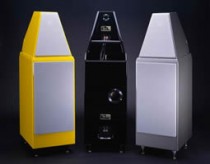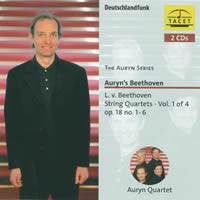Editor Mike Silverton contributed to the print bi-monthly Fanfare first as a columnist and later as a reviewer for about a dozen years before he proposed to Madrigal Audio Laboratories that they sponsor an Internet music review. Thus La Folia. (The sponsorship ended with Madrigal Labs’ demise. La Folia has since operated absent sponsorship or ads.) In addition to having contributed articles to Stereo Review, The Absolute Sound, and most recently, StereoTimes.com, Silverton produced poetry readings for Pacifica Radio (WBAI, KPFA, KPFK), WNYC and the New School for Social Research dogs’ lifetimes ago. His own poetry has appeared in anthologies compiled by the late William Cole, poetry mags, Harper’s and The Nation. More recently Silverton has shown his art at Aarhus Gallery, Belfast, Maine, and the Center for Maine Contemporary Art. A two-CD set, Analogue Smoque, Pogus 21029-2, features Silverton reading his texts to musical accompaniments by Tom Hamilton and Al Margolis. Silvertonresides with his wife Lee, an artist, in an 1842 town house on the coast of Maine (in which Jefferson Davis spent a night in 1854).
Mike Silverton

An Infidel’s Glimpse of Paradise: Wilson Audio’s WATT/ Puppy 8
From high fidelity’s mid-century inception, its consumer products’ advertised virtues have ranged from questionable to that which could perhaps hold true at a black hole’s exit.

An Infidel’s Glimpse of Paradise: Wilson Audio’s WATT/ Puppy 8
From high fidelity’s mid-century inception, its consumer products’ advertised virtues have ranged from questionable to that which could perhaps hold true at a black hole’s exit.

’Philespeak
At about mid-century, high fidelity entered the marketplace at a brisk trot.

’Philespeak
At about mid-century, high fidelity entered the marketplace at a brisk trot.

You There! Yes, You! Why Are You an Audiophile?
As for challenging sensibilities with brash provocations — musical modernism’s once-vibrant subtext — Feldman’s subversions take the least assaultive route.

You There! Yes, You! Why Are You an Audiophile?
As for challenging sensibilities with brash provocations — musical modernism’s once-vibrant subtext — Feldman’s subversions take the least assaultive route.

Sworn to Secrecy: A Tale of the CD-R
I intended to write about a solution to a problem.

Sworn to Secrecy: A Tale of the CD-R
I intended to write about a solution to a problem.

Random Noise 9: Philip Glass as Culture Meter, etc.
The music lover for whom classical’s multi-century inventory occupies the core of his interests thinks of present-day pop, that gallery of calculated oddities, if he thinks of it at all, more or less dismissively.

Random Noise 9: Philip Glass as Culture Meter, etc.
The music lover for whom classical’s multi-century inventory occupies the core of his interests thinks of present-day pop, that gallery of calculated oddities, if he thinks of it at all, more or less dismissively.

Alex Ross Among the Germans
On Alex Ross’ “Ghost Sonata: Adorno and German Music.”

Silent Running Audio’s Ohio Class Isolation Platforms
As a matter of personal interest, those aspects of audio that most fascinate have generated the greatest controversy.

Silent Running Audio’s Ohio Class Isolation Platforms
As a matter of personal interest, those aspects of audio that most fascinate have generated the greatest controversy.

Random Noise 8: You Are an Audiophile
You are an audiophile. And there’s nothing to apologize for. Nothing!

Random Noise 8: You Are an Audiophile
You are an audiophile. And there’s nothing to apologize for. Nothing!

The Best Kind of Attitude: TACET
…as a music lover and audiophile (in close to equal measure), I’m here to shout “Eureka!”

The Best Kind of Attitude: TACET
…as a music lover and audiophile (in close to equal measure), I’m here to shout “Eureka!”

Two ECM Beauties: Holliger and Lachenmann
No surprise, then, that a few highbrow composers whose methods derive in large measure from Europe’s postwar avant-garde strike an aesthetic posture of one-against-the-middlebrow-many.

Two ECM Beauties: Holliger and Lachenmann
No surprise, then, that a few highbrow composers whose methods derive in large measure from Europe’s postwar avant-garde strike an aesthetic posture of one-against-the-middlebrow-many.

La Folia Lost a Dear Companion
W.A. Grieve-Smith, 1928-2004.